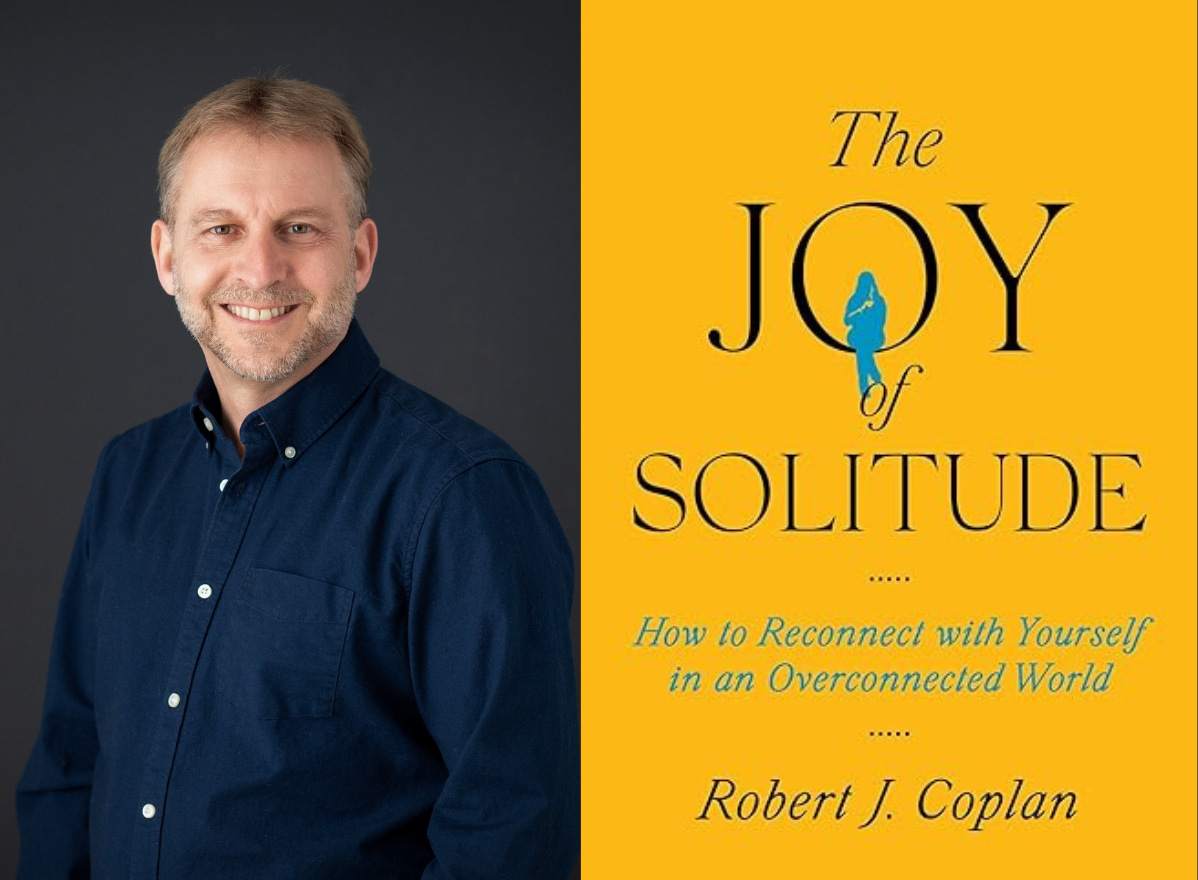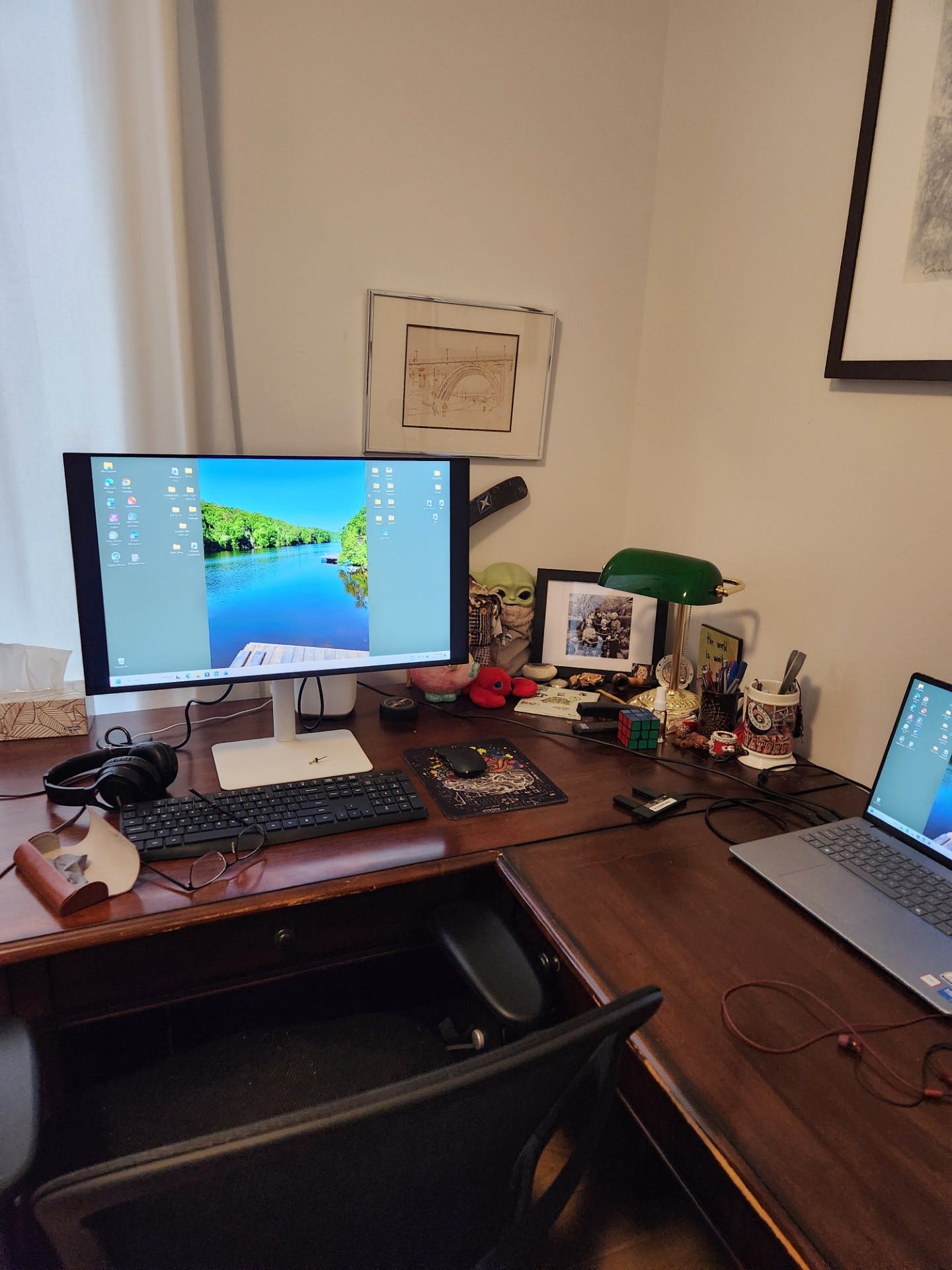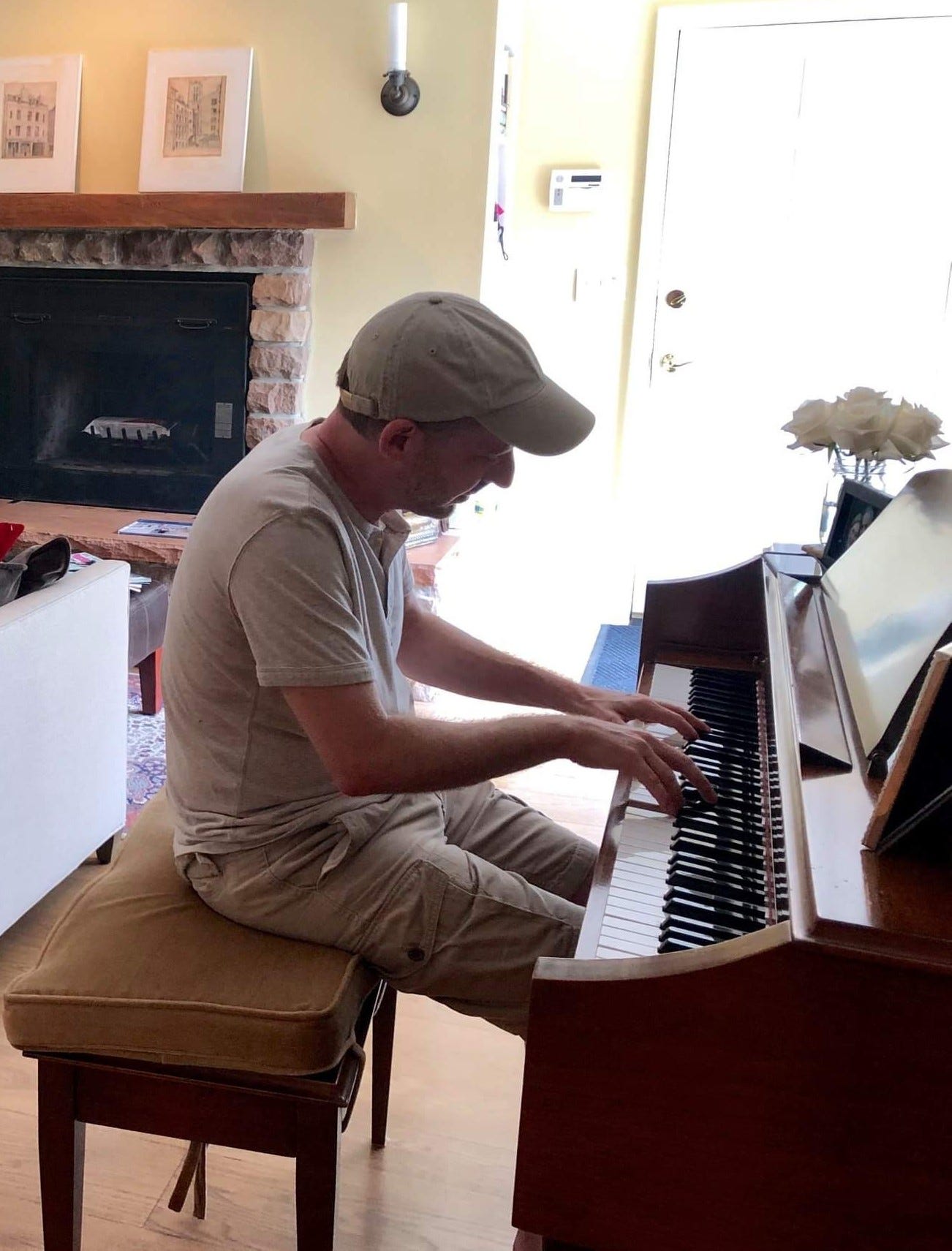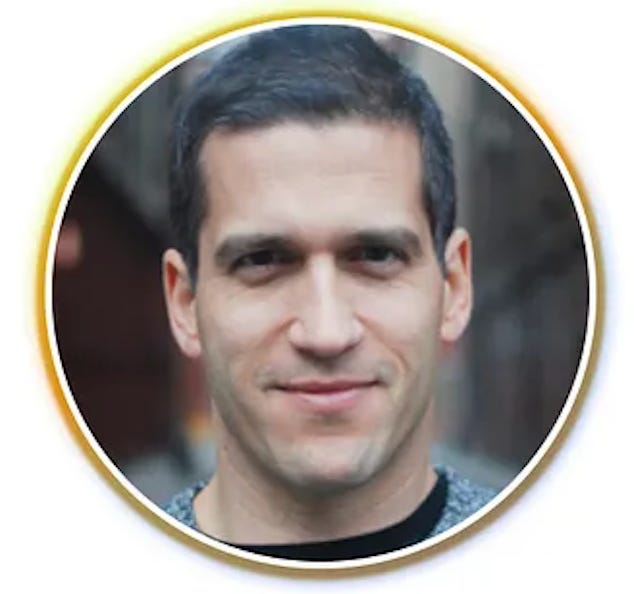Why Solitude Matters
Robert Coplan on solitude, creativity, and what thirty years of research reveal about time alone.
In a culture that rewards constant output and nonstop connection, Robert Coplan has spent his career studying the opposite: what happens when we step away. A psychologist and longtime solitude researcher, he’s spent more than thirty years mapping the inner terrain so many of us rush past: our relationship with being alone. His new book, The Joy of Solitude: How to Reconnect with Yourself in an Overconnected World, brings that work to a broader audience, offering a thoughtful, evidence-based guide to understanding the difference between loneliness and renewal (and the many nuanced, related states that accompany them).
Coplan writes about solitude the way some people write about travel: as a landscape with its own moods, challenges, and revelations. Whether he’s dictating ideas during long walks, leaning on coffee, or joking about the perils of academic perfectionism, he brings the same thing to the page that he brings to his research: compassion and self-awareness.
In this Author Insider Questionnaire, he reflects on creativity, mentorship, and why even fifteen minutes alone can be transformative if we let it.
21 Questions with Robert Coplan
1. I couldn’t have written my last book without…
A sabbatical. My day job as a University Professor comes with a full schedule of teaching, student supervision, research, and administrative duties.
2. Hemingway wrote standing up; Edith Wharton, lying down. What are your quirks?
I actually “wrote” a good deal of my last book while walking. When I am stuck and need to work something out, I take a walk outside, preferably among the trees or along the water (I call it “putting my thoughts into my feet”). I bring my phone, but only to use it to record audio notes. Best way to get unstuck!
3. Do you read your reviews?
I do – and find it (mostly) helpful. But then again, as an academic, I have developed a pretty thick skin from reading students’ teaching evaluations.
4. What income streams make up your writing business?
I am in the very fortunate position where my day job pays the bills, so I am spared most of the financial pressure of having to maximize my writing income streams.
5. Kiss, marry, kill: podcasts, newsletters, and speaking gigs.
I am okay to be “just friends” with all three. After years of teaching, public workshops, and presentations at academic conferences, I am very used to talking and writing about my work.
6. Is there a book you wish you’d written?
Quiet by Susan Cain.
7. Have any tech tools made your job easier?
I guess I am kind of old-fashioned in that I do not tend to use much tech directly in my writing. The biggest exception to this is the audio notes app on my phone that allows me to dictate my ideas (while walking – see above) and then have them automatically transcribed.
8. How has AI changed your writing process?
Not for me, but I accept that there are likely AI tools out there that could certainly help.
9. What’s the best piece of professional advice you’ve ever received?
Academics are typically trained to be cautious not to overstate things. We are always thinking that there is more research to be done before we really know anything. I guess that is why I studied solitude for more than 30 years and still thought I was not ready to write a popular press book about it. So, thank you to all those who told me that it was time, and that I could offer some carefully thought-out, evidence-based advice about solitude (even if we still have so much more to learn!).
10. And the worst?
The same advice from the same people (he said mostly joking…)
11. Whose career do you most admire and why?
I will go a bit outside the box here and say my mentor, Dr. Kenneth H. Rubin. Ken has had an absolutely extraordinary academic career in developmental psychology. He is a renowned international expert on how children engage with their social worlds and why some children retreat into solitude. I have modeled my own career after his—including his focus on translating his research into real-world applications to better the lives of children and parents.
12. What’s on your nightstand right now?
Katabasis by R.F. Kuang.
13. How did you find your agent?
I was introduced to my amazing agent, Jennifer Weis (The Weis Agency), by a common acquaintance. After decades of academic writing, she was my invaluable guide into the world of popular press books. I am forever grateful.
14. Foreign rights, audio rights, film rights: which have been the most valuable to you?
So far, foreign rights (elevator pitch for a super interesting movie: someone is sitting in a room alone with their thoughts for two hours)
15. Coffee, tea, or something stronger?
Coffee, coffee, coffee. In the words of noted philosophers Hoops and Yoyo: “Coffee is good… no coffee is bad!”
16. What’s the best non-writing skill that’s helped your writing career?
I play piano and sing. I have played in bands and performed since I was a teenager. It is the perfect balance for the stresses of writing (and academics in general). Playing music recharges my battery and nourishes my soul. It has allowed me to have a more productive career—and to be a better human.
17. How many drafts before you show your editor?
Let me start with a shout-out to the incredibly smart and talented editor Ian Strauss (Simon & Schuster), who worked with me on my recent popular press book. As a senior (aka kind of old) academic, I collaborate most often with more junior colleagues and my graduate students. An offshoot of this is that these co-authors often seem somewhat hesitant to edit my writing.
When I started working with Ian, my first request was for him to edit the **** out of my drafts! I was fairly confident in my knowledge of the content, but needed lots of help (and patience) from Ian to help me find my popular press narrative voice.
18. Can you describe your ideal workday?
The older I get, the more I become a morning person. When I wrote this last book, I tried to get in the habit of getting up early, pouring myself an extra-large cup of coffee, and writing for two to three hours before doing anything else. Then it was a morning walk, during which I just let my mind wander and percolate. This often leads to another stint of writing upon my return. After that, I would be ready to start my actual day.
19. How does that compare to your actual workday?
I mean, my actual workday has resembled my ideal workday at least once or twice…
20. Fill in the blank: In five years, successful authors will all be ______
Real humans (i.e., not AI).
21. What is your new book about?
My new book draws upon everything I have learned after studying solitude for more than 30 years. The Joy of Solitude is my attempt to provide a practical guide to experiencing all the benefits that choosing to spend time alone can offer.
Want More Insights?
If you enjoyed this questionnaire, you’ll love the rest of Author Insider—real talk, publishing insights, and creative wisdom from bestselling authors and industry pros.
Subscribe free (or paid, if you’d like to support our work) and join the community.
Until next time,
Panio Gianopoulos
Editorial Director, Author Insider & The Next Big Idea Club




